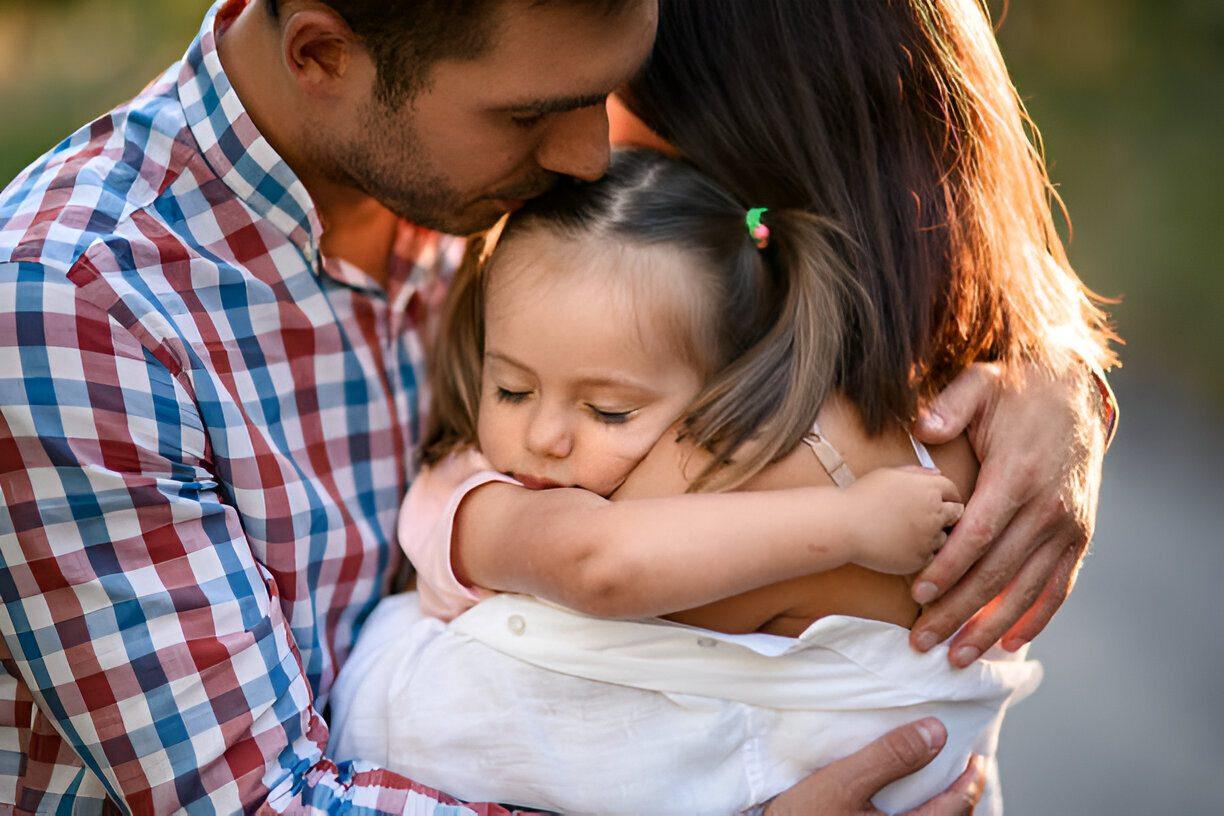A Delicate Bond of Support
There’s no handbook for enduring a child’s loss, nor for the unwavering support families need. One father said it best: “After losing our son, what helped most was simply someone being there—no magic words, just presence.” In this post, we explore how to offer real, compassionate help when the unimaginable happens.
“I never knew how much a simple text or a shared memory could mean—just knowing my daughter wasn’t forgotten gave me hope.”
A Gentle Opening

Supporting Families Through Child Loss
There’s no guidebook for facing the loss of a child—only a shared, aching truth that it changes everything. Families often feel suspended in a surreal void, struggling to piece together a life forever altered. To support them is not to heal the wound but to sit with them in the pain, offer comfort where possible, and ensure they never feel alone in their grief.
This post explores how to provide meaningful, lasting support to families navigating this unimaginable loss, balancing sensitivity, compassion, and respect for their unique journey.
Understanding the Family's Grief
Collective Grief: Every member of the family experiences the loss differently.
- Parents: Often at the epicenter of the tragedy, parents may feel a mix of overwhelming sorrow, guilt, and helplessness.
- Siblings: For siblings, the loss of a playmate, confidant, or role model leaves a profound void, often accompanied by confusion or even misplaced guilt.
- Extended Family: Grandparents, aunts, uncles, and others grieve the child they knew and the future they dreamed for them.
The Ripple Effect: A child’s death doesn’t only touch the immediate family. It impacts friends, classmates, neighbors, and entire communities, creating a collective mourning process that often goes unspoken.
Immediate Support
- Presence Over Words: In the wake of such a loss, words often feel inadequate. The simple act of being present—whether sitting silently, holding space, or helping with daily tasks—can provide immeasurable comfort.
- Acknowledge the Loss: Speak the child’s name and allow space for memories to surface. This validates the family’s grief and keeps the child’s presence alive in a meaningful way.
- Practical Help: Daily life can feel impossible to manage. Offer tangible support like running errands, preparing meals, or coordinating with others who want to help.
“Even in our darkest sorrow, a child’s love remains a guiding light.” — Martin W.
Long-Term Support
- Continued Presence: Grief doesn’t fade with time—it evolves. Stay connected in the weeks, months, and years ahead, especially during anniversaries, holidays, and milestones. A simple call or gesture can mean the world.
- Encourage Connection: Suggest or facilitate introductions to bereavement groups like The Compassionate Friends, where families can find understanding and solidarity with others navigating similar losses.
- Mark Special Dates: Help commemorate birthdays or anniversaries with meaningful acts, such as lighting a candle, organizing a gathering, or sending a heartfelt note.
Supporting the Grieving Process
- Listen Without Judgment: Grief manifests in countless ways—anger, withdrawal, despair, or guilt. Listen openly, without trying to “fix” or minimize their pain.
- Encourage Professional Help: Suggest grief counseling or therapy, offering to research options or even accompany them if needed.
- Respect Individual Paths: Each family member grieves uniquely. Some may find solace in talking, while others express emotions through art, journaling, or quiet reflection.
Creating a Legacy
-
- Memory Projects: Support the family in establishing meaningful tributes, like planting a tree, creating a memory box, or starting a scholarship fund.
- Keep the Child’s Memory Alive: Encourage integrating the child’s memory into daily life, such as displaying photos, celebrating their birthday, or sharing stories.
Navigating Holidays and Milestones
-
- Adapt Traditions: Old routines may be too painful. Help the family create new traditions that honor their loss while bringing a sense of comfort.
- Prepare for Triggers: Events like school graduations or family holidays may bring fresh waves of grief. Offer to help plan for these moments, whether through supportive presence or creating rituals of remembrance.
Support for Children
- Sibling Grief: Children may not have the language to express their emotions. Age-appropriate support, including books, grief-focused counseling, or peer connections, can help them process their feelings.
- Honest Conversations: Help parents navigate how to explain the loss to surviving siblings. Balancing honesty with sensitivity can provide clarity while ensuring emotional safety.
Things To Try This Week!
- Offer Practical Help: Volunteer to organize meal deliveries or coordinate errands for the grieving family.
- Create a Support Calendar: Encourage friends and relatives to sign up for specific days to check in, provide dinner, or send a thoughtful message.
- Share a Story or Photo: If you knew the child, share a comforting memory or photo with the family—reminding them their child’s life is cherished by others, too.
Conclusion
Supporting a family through the loss of a child is an ongoing act of love and empathy. It requires presence, patience, and a willingness to walk alongside them for as long as they need.
Grief doesn’t have a timeline, and healing doesn’t mean forgetting. By creating spaces for remembrance, honoring their child’s life, and offering steady, compassionate support, we can help families find moments of peace amidst their sorrow. In time, these moments can grow into a legacy of love that keeps their child’s memory alive.
Even the smallest gestures of support can help transform heartbreak into a gentle remembrance.
If you’re seeking meaningful ways to honor and uplift those who’ve experienced child loss, our cherish section offers thoughtful keepsakes and comforting items. May they serve as a loving extension of your support, bridging sorrow and remembrance in a truly heartfelt way.
Cherish Family: Honoring the Bonds That Shape Us
Family shapes who we are, and their memory deserves to be cherished. Explore meaningful ways to celebrate your family’s love and legacy through our “Cherish Family” collection.
More Reflections, More Growth
Loss is complex, and the road to healing is different for everyone. These reflections offer insight, support, and guidance as you navigate this journey.
Guilt and Grief: Coping with the Coulda, Woulda, Shouldas After Losing a Grandparent
Losing a grandparent can stir feelings of guilt and regret. This guide explores how to cope with the “coulda, woulda, shouldas,” reframe negative thoughts, and honor the love and memories you shared with your grandparent.
Long-Distance Love: Coping with the Grief and Sadness of Long-Distance Grandparenting
Long-distance grandparenting comes with unique challenges, including grief and separation from your grandchildren. This guide offers practical strategies to help maintain strong bonds and emotional connections, even when physical distance creates a sense of loss.
Cumulative Grief: Coping with the Loss of Multiple Grandparents in a Short Time
Cumulative grief occurs when multiple losses pile up, overwhelming the grieving process. This guide offers strategies for navigating the complexities of losing multiple grandparents, honoring their memory, and caring for yourself during this challenging time.
Navigating Grief After the Loss of a Grandparent: A Guide for Adult Grandchildren
Losing a grandparent is often an overlooked form of grief. For adult grandchildren, this loss can bring deep sadness, mixed emotions, and a sense of disconnectedness from family history. This guide offers coping strategies for navigating grief, honoring their legacy, and integrating their presence into your life moving forward.
Holding On, Together: Maintaining Family Connections After Loss
Loss reshapes family dynamics, but shared grief can strengthen bonds. This guide offers strategies for communication, rituals, and support to maintain family connections.
A Subtle Yet Profound Loss: Grieving an Extended Family Member
Grieving an extended family member’s death is a unique journey. This guide offers compassionate advice to honor their memory, navigate grief, and find healing.
Honoring a Child’s Memory
Honoring a child’s memory is a profound way to navigate grief. This guide explores creative tributes, rituals, and acts of kindness to celebrate their enduring legacy.
Sibling Bonds: Coping with Loss Together
Grieving a sibling is deeply personal. This guide offers compassionate strategies to navigate grief, honor their memory, and strengthen your bond through shared healing.
When a Sibling Passes: Healing the Void
Losing a sibling leaves a profound void, but healing comes through honoring their memory and embracing connection. This guide explores ways to navigate grief and find peace.
Explore Journeys of Healing and Solace:
Discover dedicated spaces that offer understanding, guidance, and connection through grief. From the loss of loved ones to life’s challenging transitions, each category provides a pathway to reflect, connect, and find peace in shared experiences.


























